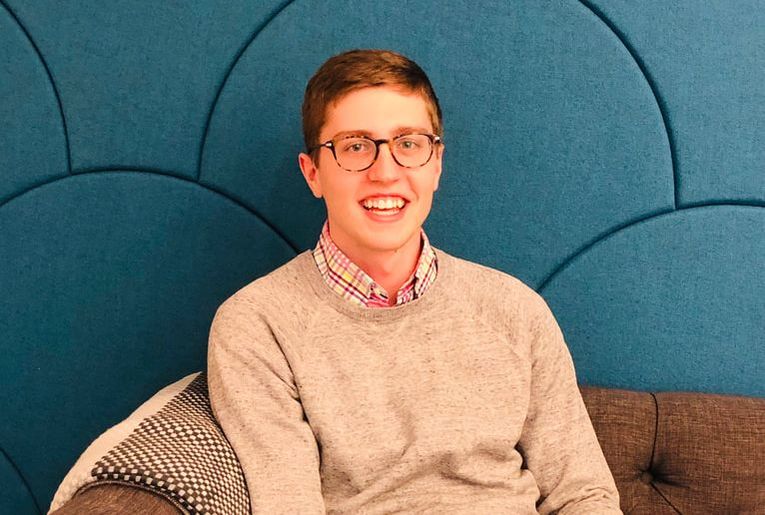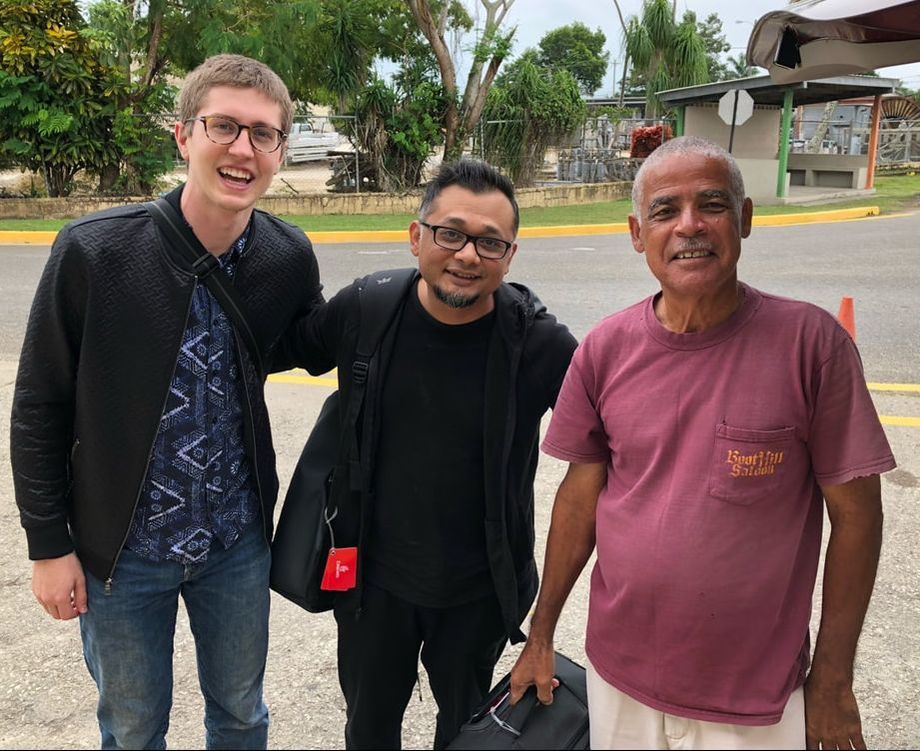Understanding Data, Contributing to Development and Making a Difference: My CSF Experience21/12/2018 Seth Davis, Communications Officer, Community Systems Foundation Having the dream of working in human development since participating in Model United Nations as a first-year student in university, it seems almost unreal that six months after graduating I have already contributed to projects led by UNESCO, UN Free & Equal (UNFE) and the World Health Organization (WHO), among others. In part, this is directly related to the topic of my internship with Community Systems Foundation (CSF). Given my specific interests in project implementation and the intersections of religion and development, however, I have also been able to shape the last six months, with guidance from CSF leadership, to include activities unrelated to a traditional communications internship. While my studies at university did not directly focus on communications, becoming a communications intern at CSF was the greatest and easiest way to learn about the organization. As an organization that focuses on developing innovations to create evidence-based change around the world, CSF’s work is quite complicated, especially considering I had not previously studied the relationship between data and development. By developing and populating the CSF Portfolio, Innovations and Impact pages, however, I have been able to understand the importance of the contributions that CSF makes when developing education management information systems (EMIS), designing real-time data dashboards and conducting technical assistance missions throughout the world. On a day-to-day basis, my responsibilities have included managing the CSF website and social media accounts, which include Facebook, LinkedIn and Twitter, as well as writing blogs that aim to demonstrate the impact of CSF’s work around the world. While managing CSF’s social media feeds has been interesting, especially considering counterparts from various ministries around the world, as well as major development organizations, have interacted with CSF’s through these mediums, I have been most interested in developing blogs on projects like EQUIST, U-DISE and UN INFO. For me, these topics demonstrate how CSF contributes to human development in the education and health sectors as well as to the UN reform that Antonio Guterres laid out in his 2019 Secretary General Report. In addition to managing CSF’s website and social media content, I have also worked closely with UNESCO’s OpenEMIS project. Originally designed to collect, manage and disseminate education data on Syrian refugee children, the OpenEMIS initiative has now been implemented in 12 countries and manages the data of over three million children. To contribute to these efforts, I have also managed the OpenEMIS social media accounts and developed blog posts that highlight CSF’s contributions to the initiative in Barbados, Belize and the Maldives, among other countries. Beyond the scope of CSF communications Throughout my internship I have also been able to work closely with other UN organizations and initiatives and with counterparts from national ministries. Related to communications, I have worked closely with the Sanitation and Water for All initiative and WHO’s Universal Health Coverage Partnership to develop monthly website analytics reports that seek to guide user engagement with their website in the following months. These reports have led to the development of country-specific website content that have aimed to bring in visitors from certain parts of the world, in addition to enabling counterparts to best understand who is engaging in their content. In addition, I have become “the voice” of UN INFO, a UN DOCO-led initiative that aims to help UN Country Teams coordinate more efficiently and to develop UNDAF and BOS plans more easily. To contribute to this initiative, I have recorded voice-overs for UN INFO’s instructional videos that will guide users on how to use the system once it is launched. While users may never know they are listening to my voice, I’ll always be proud of being a part of CSF’s contribution to enable better coordination and project management of UN officials around the world. Beyond communications work, I have also been able to coordinate programme activities for UN Free & Equal (UNFE) and with the Ministry of Human Development, Social Transformation and Poverty Alleviation. In 2015, CSF developed the “History of the Right to Love (If You’re Gay)” map visualization that outlines the history of criminalization and decriminalization legislation of same-sex relations throughout the world. Recently, CSF coordinated with UNFE to understand the possibilities of updating the map visualization to reflect the current status of same-sex legislation around the world. While the update has not been complete as of now, CSF remains committed to partnering with UNFE to provide the necessary updates. Additionally, I have been directly involved with project coordination and implementation of Data For All in Belize. Through this project, counterparts from the Ministry of Human Development aimed to transition their data from DevInfo, a global database system that provides counterparts with the ability to manage collected data, to Data For All with the goal of disseminating and visualizing real-time data for the first time. In partnership with UNICEF and the Ministry of Human Development, I was able to help conduct a technical assistance mission in Belize City, Belize with Christopher Tongbram, Associate Programme Manager and Team Lead of the CSF Data Team in New Delhi, India. This mission was done with the goal of visualizing indicators related to Belize’s National Children’s Agenda. In this regard, the mission provided me with the opportunity to be a part of a human development initiative and to better understand the technical aspects of CSF’s work. Lastly, in addition to meeting the communication needs of CSF, it was important to me that there was flexibility in my internship to incorporate my areas of interest.
While CSF tends to focus on education, gender, health, knowledge management and programme monitoring initiatives, my studies were often not in these areas. Graduating from university with degrees in Political Science, Public Affairs and Religious Studies, my programs often incorporated these sectors, however, my areas of interested generally related to the intersections of religion and international development. It has been wonderful having colleagues that are completely supportive of my goal to bring development professionals, both religious and secular, together to demonstrate the importance of faith leaders around the world having access to accurate and real-time data. While this has mostly been an independent initiative, with some guidance from colleagues along the way, reaching out to faith based organizations has provided me with the unique and rewarding challenge of developing a project in my interest area that is largely out of the current scope of CSF. Conclusion Interning with CSF has not only enabled me to collaborate closely with and learn from staff based in the Caribbean, Central America, Egypt, India, Jordan and Singapore, but it has enabled me to learn from experts in the education, gender, heath, and urban development sectors and understand where CSF is contributing to the Sustainable Development Goals. As I reflect on my time with CSF, I think about the moment I arrive to the office each morning and open the door. When I do, I am always met with excitement from the staff in the New York City office. Their enthusiasm and spirit drives me to work hard, learn more and contribute to CSF in every way I can. In this regard, what I cherish most about my internship experience with CSF is that every day I am reassured that CSF’s contributions to human development are making a more healthy, informed and peaceful world.
0 Comments
Leave a Reply. |
Join the CSF data revolution webinar tomorrow!
COMMUNITY SYSTEMS FOUNDATION – EST 1963
+1 212 500 1335
data-driven sustainable development


